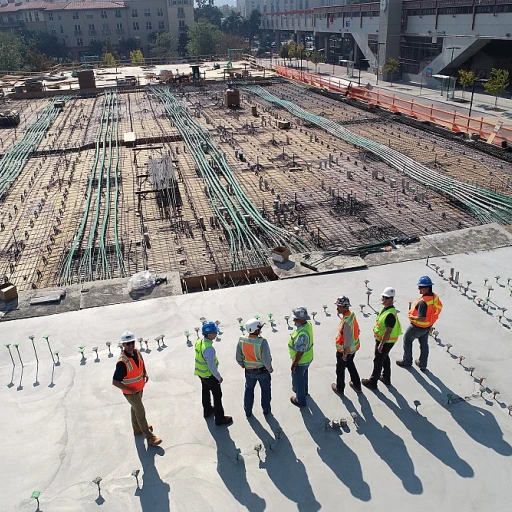
What is pre adverse action in background checks
Defining Pre-Adverse Action in Employment Background Screening
When employers conduct a background check as part of the hiring process, they may uncover information that could impact their decision to hire a candidate. If an employer is considering taking adverse action—such as denying employment—based on information found in a consumer report or background report, the Fair Credit Reporting Act (FCRA) requires a specific step: the pre-adverse action notice.
A pre-adverse action notice is a formal communication sent to the applicant before any final adverse action is taken. This notice informs the candidate that something in their background check report may lead to a negative employment decision. The purpose is to give the applicant a fair chance to review the information, dispute inaccuracies, or provide context before the employer makes a final decision.
- Pre-adverse action is not the same as a final adverse action. It is a preliminary step in the action process, designed to ensure compliance with fair credit and consumer reporting laws.
- The notice typically includes a copy of the background check report and a summary of rights under the FCRA, so the applicant understands their options and protections.
- This process applies to all types of consumer reports, including credit reports, criminal background checks, and employment verification.
Employers must follow this process to remain compliant with FCRA regulations and to uphold the rights of job applicants. The amount of time given to the candidate to respond—often called the waiting period—can vary, but it is a critical part of ensuring fair treatment in employment decisions.
Understanding the differences between a durable power of attorney (DPOA) and a power of attorney (POA) can also play a role in background screening, especially when verifying legal authority or representation. For more details on this topic, see understanding the differences between DPOA and POA.
The pre-adverse action process is just one part of a broader compliance landscape in background screening. In the following sections, we’ll explore how this process works, common reasons for receiving a pre-adverse action notice, and both employer and applicant rights and responsibilities.
How the pre adverse action process works
Step-by-Step: What Happens During the Pre-Adverse Action Process
When an employer reviews a background check report and spots information that might affect a hiring decision, the pre-adverse action process begins. This process is required under the Fair Credit Reporting Act (FCRA) and is designed to ensure fairness for the applicant or candidate.- Initial Review: The employer receives the background report from a consumer reporting agency. If the report contains details that could lead to a negative employment action, such as a rescinded job offer, the employer must pause before making a final decision.
- Pre-Adverse Action Notice: The employer sends a pre-adverse action notice to the applicant. This letter informs the candidate that something in their background check may impact their employment opportunity. The notice must include a copy of the background check report and a summary of rights under the FCRA.
- Waiting Period: After sending the notice, employers must give the applicant a reasonable amount of time to review the report and respond. While the FCRA does not specify the exact amount of time, many employers use a five to seven day waiting period to ensure compliance and fairness.
- Applicant Response: During this period, the candidate can dispute any inaccurate or incomplete information with the consumer reporting agency. This step is crucial for protecting the rights of the applicant and ensuring the accuracy of the background screening process.
- Final Adverse Action: If, after considering the applicant’s response, the employer decides not to move forward with employment, a final adverse action notice is sent. This letter confirms the decision and provides information about the consumer reporting agency, so the applicant can follow up if needed.
Common reasons for pre adverse action notices
Frequent Triggers for Pre-Adverse Action Notices
Employers rely on background screening to make informed hiring decisions, but sometimes the results of a background check report raise concerns. When this happens, a pre-adverse action notice is often sent to the candidate before any final adverse action is taken. Here are some of the most common reasons employers issue these notices:
- Criminal Records: Convictions or pending charges found during a background check are a leading cause. Employers must weigh the nature and relevance of the offense to the job role, but any criminal history can prompt a pre-adverse action process.
- Credit History: For positions involving financial responsibility, negative credit reporting—like bankruptcies, high debt, or poor payment history—can trigger a pre-adverse action letter. The Fair Credit Reporting Act (FCRA) requires employers to follow specific steps in these cases.
- Employment Verification Issues: Discrepancies between the applicant’s stated work history and what is found in the background report may lead to a notice. This includes unexplained gaps, false job titles, or unverifiable employers.
- Education Verification Problems: If the background check reveals that a candidate did not earn the degree or certification claimed, employers often initiate the pre-adverse action process.
- Driving Records: For roles that require driving, violations or license suspensions found in the consumer report can be a deciding factor.
- Professional License Issues: Missing, expired, or revoked professional licenses discovered during background screening can also result in a pre-adverse action notice.
It’s important to note that the FCRA and other fair credit laws require employers to provide the applicant with a copy of the background check report and a summary of their rights before making a final adverse decision. This waiting period gives the candidate a chance to dispute inaccuracies or provide context.
For those interested in how these trends impact specific roles, such as law enforcement investigators, you can learn more in this analysis of district attorney investigator jobs and background check trends.
Understanding the most common triggers for pre-adverse action notices helps both employers and applicants navigate the process with greater transparency and compliance.
Your rights when you receive a pre adverse action notice
Your protections under the Fair Credit Reporting Act (FCRA)
When you receive a pre adverse action notice after a background check, you have specific rights under the Fair Credit Reporting Act (FCRA). This law is designed to ensure fairness, accuracy, and privacy in the use of consumer reports for employment decisions. Here’s what you should know about your rights during this process:
- Access to your background report: The employer must provide you with a copy of the background check report that influenced their decision. This allows you to see exactly what information was considered.
- Notice of your rights: Along with the pre adverse action letter, you should receive a summary of your rights under the FCRA. This document explains how you can dispute inaccurate or incomplete information in your consumer report.
- Opportunity to respond: You have the right to dispute any errors or outdated information in your background or credit report. The employer must give you a reasonable amount of time—often five business days or more—to respond before making a final adverse action decision.
- Right to dispute with the consumer reporting agency: If you find mistakes, you can contact the consumer reporting agency to challenge the information. They are required to investigate and correct any inaccuracies.
- Protection from unfair decisions: Employers must follow the proper pre adverse action process. If they skip steps or make a hiring decision without giving you a chance to respond, they may be in violation of the FCRA.
Understanding these rights is crucial for any applicant or candidate facing a potential adverse action. It ensures that the employment decision is based on accurate and fair background screening, and that you have a voice in the process.
Employer responsibilities during pre adverse action
Key employer obligations during the pre-adverse action process
Employers must follow strict procedures when considering taking adverse action based on a background check. The Fair Credit Reporting Act (FCRA) sets out clear steps to ensure fairness and transparency for every candidate or applicant. Here’s what employers are required to do:- Provide a pre-adverse action notice: Before making any final employment decision, employers must send a pre adverse action notice to the applicant. This notice informs the candidate that information in their background report may impact their hiring decision.
- Include required documentation: The notice must include a copy of the background check report (also called a consumer report) and a summary of rights under the FCRA. This gives the applicant a chance to review the information and respond.
- Allow a reasonable waiting period: Employers must give the applicant a reasonable amount of time—typically five business days—before taking final adverse action. This waiting period allows the candidate to dispute any inaccuracies in the background or credit report.
- Review applicant responses: If the applicant disputes the background check findings, employers are required to consider any additional information or corrections before making a final decision.
- Send a final adverse action letter if necessary: If the employer decides not to move forward with employment, a final adverse action notice must be sent. This letter must explain the decision and provide details about the consumer reporting agency that supplied the background screening.
Maintaining compliance and documentation
Employers should keep detailed records of every step in the pre adverse action process. This includes copies of all notices, reports, and correspondence with the applicant. Proper documentation helps demonstrate compliance with FCRA requirements and protects against legal challenges. Employers also need to ensure that their background screening policies are consistent, non-discriminatory, and up to date with current laws. Regular training and audits can help maintain compliance and reduce the risk of errors in the employment decision process. Staying informed about changes in background check regulations and best practices is essential for employers who want to avoid costly mistakes and build trust with candidates.Trends and challenges in pre adverse action practices
Shifting Compliance Landscape and Technology
The pre adverse action process in background screening is evolving rapidly, shaped by new regulations and technological advances. Employers are under increasing pressure to follow the Fair Credit Reporting Act (FCRA) and state-specific laws, which can differ significantly. The use of automated systems to deliver pre adverse action notices and manage the waiting period is becoming more common, but this brings its own challenges. Automated adverse action letters must still meet compliance standards, and employers need to ensure that candidates receive all required information about their background check report and rights.
Challenges in Consistency and Timeliness
One of the main challenges for employers is maintaining consistency in the pre adverse action process. With the amount of background checks increasing, especially for remote and gig employment, ensuring every applicant receives a proper pre adverse action notice and has the correct amount of time to respond is critical. Delays or mistakes in sending out the action notice or final adverse action letter can lead to compliance risks and potential legal issues. Employers must also be careful about the timing between the pre adverse action notice and the final employment decision, as required by the FCRA and some state laws.
Transparency and Candidate Experience
There is a growing trend toward greater transparency in background screening. Applicants are more aware of their rights regarding consumer reports and expect clear communication from employers. Providing a copy of the background report, a summary of rights under the FCRA, and information about the consumer reporting agency is now standard practice. Some employers go further by offering guidance on how to dispute information in the background check report, aiming to create a fairer hiring process.
Data Security and Privacy Concerns
With more sensitive information being shared during the background check process, data security is a top concern. Employers and consumer reporting agencies must protect applicant data and comply with privacy laws. Any breach or mishandling of background or credit reporting information can have serious consequences for both the employer and the candidate.
- Automated systems are streamlining the adverse action process, but require careful oversight.
- State and local laws may add extra steps or waiting periods to the pre adverse action process.
- Transparency and communication are key to a positive candidate experience and compliance.
- Data privacy and security are critical as background screening becomes more digital.












